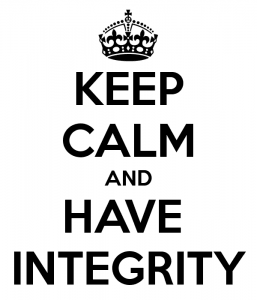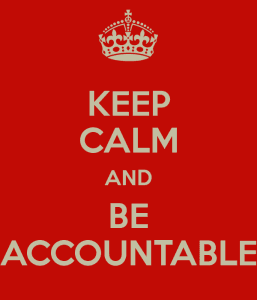In the June 23, 2015 Ask The Headhunter Newsletter, Nick responds to readers who want to know what he thinks of a Time magazine cover story about employers that use “XQ” to assess job applicants.
Your XQ: More HR B.S.?
Readers have been peppering me with questions, asking my reaction to a recent Time cover story: How High Is Your XQ? It’s about “strange questions you need to answer to get a job in the era of optimized hiring.”
Translation: It’s about employers’ new-found love for letting third-party personality-testing companies decide whether to reject you before the employer even meets you.
I give the author of the article, Eliza Gray, credit for dealing with “optimized hiring” candidly and critically. The article is worth reading. (If you don’t subscribe to Time, you can’t read the full story online. Everyone, however, can read an online companion piece, Find out if your personality fits your job.)
In this week’s newsletter, I’m going to tell you what I think, and suggest how you might deal with this latest effort by HR executives to abrogate their responsibilities for hiring.
But what really matters in all this is what you think, because that’s what will rattle these employers. Read on, then join me in the discussion below. We’ll talk.
A $2 Billion Industry
Time reports: “Convinced by the gurus of Big Data that a perfect workforce can be achieved by analyzing the psyche and running the results through computers, hundreds of employers now insist that job candidates submit to personality tests.”
 A $2 billion testing industry, funded by your friendly neighborhood HR department, “evaluates” job applicants even before an employer decides they’re worth interviewing. Yes, you too can get rejected before you’re even considered.
A $2 billion testing industry, funded by your friendly neighborhood HR department, “evaluates” job applicants even before an employer decides they’re worth interviewing. Yes, you too can get rejected before you’re even considered.
What does all this entail? “Tests that can take anywhere from 20 minutes to several hours,” says Time.
Why does HR do this? It’s simple. HR doesn’t want to recruit, judge job applicants, hire, or be held accountable. So HR execs farm their work out to third parties that are not regulated — but who control whether you get a job.
What it means: HR has left the building. There’s a stuffed animal in the HR VP’s chair signing contracts, outsourcing hiring to clowns wearing psychologists’ hats. These employers consider their employees fungible commodities. (See An insider’s biggest beefs with employment testing.)
My advice: Strike back, especially if you’re gainfully employed. “Sorry, my policy is not to take tests or fill out voluminous forms until the hiring manager and I decide there’s good reason to continue talking. When can I meet the manager?”
I realize that if you’re unemployed, you might hesitate to be so assertive. But consider that after you invest your time, odds are very high that you’ll be rejected by an algorithm — time you could spend interviewing with a human who really wants to hire you.
Bottom line: Any employer that won’t take the time to meet you before rejecting you operates without integrity and is not one to work for.
The No-See-Um Assessment
What are HR departments looking for?
 Time reports: “It isn’t an IQ rating or even EQ, the emotional intelligence quotient that came into vogue in the 1990s. There’s no name yet for this indispensable attribute. The qualities are so murky that often not even the employers chasing it are able to define it; they simply know that an algorithm has discovered a correlation between a candidate’s answers (such as an expressed preference for classical music) and responses given by some of their most successful workers. So let’s call it the X quotient… your XQ test, an exam that no one has prepared you for.”
Time reports: “It isn’t an IQ rating or even EQ, the emotional intelligence quotient that came into vogue in the 1990s. There’s no name yet for this indispensable attribute. The qualities are so murky that often not even the employers chasing it are able to define it; they simply know that an algorithm has discovered a correlation between a candidate’s answers (such as an expressed preference for classical music) and responses given by some of their most successful workers. So let’s call it the X quotient… your XQ test, an exam that no one has prepared you for.”
What it means: You apply for a job. HR has no time to interview you. (See 7 Mistakes Internal Recruiters Make.) It makes you take a test instead, saving its time and money, while you play outsourced psychological games, spending your time like it’s free. These tests reveal correlations, which reflect nothing about your skills or ability to do a job.
Your answers to useless questions like, “Do you understand why stars twinkle?” correlate with the answers of successful employees. But statistical correlations don’t prove anything. They merely suggest you’re similar to someone else. If you’re not, it doesn’t matter that you can do the job better than any other current employee. You lose.
My advice: Don’t play the No-See-Um Game, in which no one interviews you. Insist on being seen by a hiring manager in person. There are many companies that respect job applicants and assess them face to face. (See Kick the candidate out of your office.) Don’t feed the $2 billion racket. Find an honest employer instead.
Meet Andy Biga
If hiring decisions that are based on test correlations are really not a good thing, why do employers rely on them?
 Time tells about a JetBlue HR executive named Andy Biga who “optimizes hiring.” He processes 150,000 job applicants for the airline, and hires 3,000 of them after they “get past the battery of tests Biga’s team designed.”
Time tells about a JetBlue HR executive named Andy Biga who “optimizes hiring.” He processes 150,000 job applicants for the airline, and hires 3,000 of them after they “get past the battery of tests Biga’s team designed.”
Biga says, “I believe this is really the future for hiring.”
Oops: It seems Andy Biga is full of baloney. I know, because I spoke with Dr. Arnold Glass, a leading researcher in cognitive psychology at Rutgers University. Glass adds a measure of Real Science to Biga’s claims about Big Data in the service of HR:
“It has been known since Alfred Binet and Victor Henri constructed the original IQ test in 1905 that the best predictor of job (or academic) performance is a test composed of the tasks that will be performed on the job. Therefore, the idea that collecting tons of extraneous facts about a person (Big Data!) and including them in some monster regression equation will improve its predictive value is laughable.”
The Time reporter “called Biga and his protege, another 30-something data wiz named Ryan Dullaghan, after the conference to see if they’d talk me past the buzzwords and through what they’re really looking for in a new hire. No dice. After all, if the traits they wanted in an employee were printed in TIME, they said, job applicants might be able to game the test.”
What it means: JetBlue and companies like it don’t hire you for what you can do. They hire you because you correctly agree or disagree with statements like, “I feel stressed when others rush me.” What that means is a secret. That’s how they game you.
 My advice: Buy a lottery ticket instead. Because, can you imagine how Andy sorts through 150,000 applicants? BZZZT! That’s a trick question! He doesn’t. Nobody at JetBlue does. If JetBlue had any idea how to recruit the right people, it wouldn’t throw 150,000 strands of spaghetti at the wall.
My advice: Buy a lottery ticket instead. Because, can you imagine how Andy sorts through 150,000 applicants? BZZZT! That’s a trick question! He doesn’t. Nobody at JetBlue does. If JetBlue had any idea how to recruit the right people, it wouldn’t throw 150,000 strands of spaghetti at the wall.
Andy has a big problem: The FTC is looking into how these hiring algorithms promote bias and discrimination. Ashkan Soltani, the FTC’s chief technologist, says, “We have little insight as to how these algorithms operate, what incentives are behind them or what data is used and how it’s structured.” CIO magazine reports that the FTC has formed a new Office of Technology Research and Investigation to look at bias in hiring algorithms.
Soltani cautions: “A lot of times the tendency is to let software do its thing. But to the degree that software reinforces biases and discrimination, there are normative values at stake.”
Oops. There goes Andy Biga’s future.
Meet Charles Phillips
This racket is so corrupt that I couldn’t make up what Time disclosed.
Time reports: “One of the bigger outfits is Infor, a New York–based software company that claims to assess a million candidates a month–a number that translates to 11% of the U.S. workforce.”
 Hertz, Boston Market and Tenet Healthcare outsource candidate testing to Infor. The company “concocts a job applicant’s ‘Behavioral DNA,’ a measure of ’39 behavioral, cognitive and cultural traits,’ and compares them to the personality traits of the company’s top performers.”
Hertz, Boston Market and Tenet Healthcare outsource candidate testing to Infor. The company “concocts a job applicant’s ‘Behavioral DNA,’ a measure of ’39 behavioral, cognitive and cultural traits,’ and compares them to the personality traits of the company’s top performers.”
What it means: “Behavioral DNA” is a B.S. marketing term with no scientific meaning. Now for the good part. Says the Time reporter: “Infor CEO Charles Phillips admitted he’d never taken the test when we spoke, adding, ‘I’m scared of what I might find.’”
My advice: A CEO who admits he won’t eat his own company’s dog food — but wants to feed it to you — has no business rejecting you for a job at arm’s length. Kudos to Time for exposing Infor. Look up the list of Infor’s clients. Would you apply for a job at any of them, knowing how you’ll be “assessed?” Find employers who don’t serve Charlie Phillips’ dog food to people who apply for jobs.
Correlation Is King
What is Infor selling to gullible HR executives who couldn’t recruit a dog to bite a mailman? Correlations, reports Time.
Phillips and his testing chums sell “a mostly unchallenged belief that lots of data combined with lots of analytics can optimize pretty much anything–even people. Thus, ‘people analytics,’ the most buzzed-about buzzword in HR circles at the moment. Included in people analytics is everything from looking at the correlation between compensation and attrition to analyzing employees’ email and calendars to see if they are using their time effectively… Correlation is king, even when causation is far from clear. So it’s only natural that data worship would take hold in hiring.”
Remember what Rutgers’ Dr. Glass said: “The idea that collecting tons of extraneous facts about a person (Big Data!) and including them in some monster regression equation will improve its predictive value is laughable.”
Meet Ray Dalio, animal wrangler
According to Time, one employer that does its own “people analytics” is Bridgewater Associates, the world’s biggest hedge fund. The company’s founder, Ray Dalio, expresses a belief that HR execs are quickly adopting:
 “Without data, we are no better than cavemen he says. ‘Society is in its animal, emotional state that is the equivalent of the dark ages. We are in this transition period where all that is hidden in darkness will come out through statistical evidence,’ he says.”
“Without data, we are no better than cavemen he says. ‘Society is in its animal, emotional state that is the equivalent of the dark ages. We are in this transition period where all that is hidden in darkness will come out through statistical evidence,’ he says.”
What about all this testing, correlation and prediction to assess candidates for jobs? Peter Cappelli, a leading HR researcher at the Wharton School of Management, cuts to the chase: “Nothing in the science of prediction and selection beats observing actual performance in an equivalent role.”
But none of the executives cited by Time select candidates by observing them actually performing a job.
The Science Of Snake Oil
 It’s no accident that Andy Biga, Charles Phillips, and Ray Dalio are not scientists. They’re snake oil salesmen using fake technical lingo (Behavioral DNA? Jump, Spot, jump!) to impress lightweight HR executives. “Big Data” impresses HR charlatans who hide behind other charlatans to whom they outsource their own jobs — recruiting and hiring.
It’s no accident that Andy Biga, Charles Phillips, and Ray Dalio are not scientists. They’re snake oil salesmen using fake technical lingo (Behavioral DNA? Jump, Spot, jump!) to impress lightweight HR executives. “Big Data” impresses HR charlatans who hide behind other charlatans to whom they outsource their own jobs — recruiting and hiring.
The bunch of them love to pontificate about “evidence based” assessments. Yet real HR researchers, cognitive psychologists, Time magazine, and the FTC tell us there’s no evidence, no science, and possibly no integrity in any of this.
(There are ways to apply for a job by going around these obstacles. See Fearless Job Hunting, Book 3, Get in The Door (way ahead of your competition)).
We Have Met The Enemy
Job seekers at every level — including some of the smartest, most educated people in America — have met the enemy on the jobs battlefield. And the enemy is job seekers themselves. They’ve let themselves be suckered.
As long as job seekers consent to be treated like commodities, as long as they let their teeth be checked like horses at auction, as long as they subject themselves to imperious bureaucrats who hold up hoops to jump through, then they’ll be abused.
Job seekers are their own biggest enemy. Folks, you have to grow some integrity of your own and refuse to be abused.
So, how do I get a job?
Job seekers tell me all the time that they’re terrified to buck the system. So, how can they possibly land a job in this miasma of phony science, trumped-up hiring technology, and HR bullying?
It’s simple. Please pay attention.
Time reports that job seeker Kelly Ditson finally landed a job after subjecting herself to demeaning online applications and personality tests. She stayed up “as late as two in the morning to finish just four applications.”
In one case, “she made it to the 95th question on the Chili’s [restaurant chain] application only to have [the] wi-fi connection cut out. She had to start all over. Chili’s had no comment for Time. Ditson said she was exasperated… In the end, she got her job the old-fashioned way: calling the manager at the Olive Garden until she hired her. She started in March.”
Ditson went and talked to the manager she wanted to work for. One on one, not one in 150,000.
No one can make a fool out of you if you don’t let them. (See Employment In America: WTF is going on?) When will HR wise up and realize it’s losing the respect of job seekers every day? When will HR realize it’s being played for the fool by software companies masquerading as scientists? When will HR realize that “the people game” is played with real, live people — not phony “evidence” derived from “Big Data” by tech wonks working for stuffed animals in the HR suite?
HR will realize it when job seekers stop rolling over.
My Advice
HR execs say there’s a talent shortage. That puts you in the driver’s seat, folks — it’s a seller’s market!
 Throughout Ask The Headhunter — the website, blog, newsletter, books — I talk (write) myself blue in the face about how to demonstrate that you’re the profitable hire. (For example, Fearless Job Hunting, Book 6, The Interview: Be The Profitable Hire.) The best employers hire those that can do the job — they don’t diddle databases to find people who hate opera singing, know why stars twinkle, or would like to be the color red.
Throughout Ask The Headhunter — the website, blog, newsletter, books — I talk (write) myself blue in the face about how to demonstrate that you’re the profitable hire. (For example, Fearless Job Hunting, Book 6, The Interview: Be The Profitable Hire.) The best employers hire those that can do the job — they don’t diddle databases to find people who hate opera singing, know why stars twinkle, or would like to be the color red.
If you don’t say no to employers who treat you like a dog begging for a bone, you’re going to wind up in the dog house. There are good employers and managers who respect talented workers. They will meet you and judge you in person. They will introduce you to their teams and assess whether you can do the work, get along with others, and contribute to the bottom line.
HR executives and the employers they work for should be ashamed of themselves — outsourcing hiring, the most proprietary edge a company has. Ray Dalio is wrong. You are not an animal in an emotional state. Tell any employer or testing company that treats you that way to shove it. And go work for one of their better competitors.
That’s the only way to end the optimized rejection of millions of job applicants.
Is there an end to this? Have you been abused by employers and subjected to “evidence-based hiring” that relies on phony “science” and made-up “tests?” Are you ready to say NO and move on to employers that respect people enough to talk to them rather than “analyze” them blindly? Let’s hear about employers that are worth applying to!
: :
I recently got a very nice thank-you note from an applicant to whom I had sent a no-thank-you — that is, a rejection letter. She seemed surprised to hear from me. As a manager, it has always been my practice to reply to every applicant either by letter or e-mail. I’ve been criticized for the time it takes. However, I believe that if someone takes the time to express interest in your company, the least you can do is tell them “no, thank you” if you don’t want them.
 It’s easy to be rude to a resume; but you can’t hire resumes. Top-notch workers in your field will not stand for rudeness. Talk to all the people you pissed off when you ignored their applications, and you will learn what rude is. Rude is awakening to find your company’s professional reputation has been trashed by good applicants who found out you’re not as good as they are. (See Death by Lethal Reputation.)
It’s easy to be rude to a resume; but you can’t hire resumes. Top-notch workers in your field will not stand for rudeness. Talk to all the people you pissed off when you ignored their applications, and you will learn what rude is. Rude is awakening to find your company’s professional reputation has been trashed by good applicants who found out you’re not as good as they are. (See Death by Lethal Reputation.)

 I manage a small team, but I’m pretty new to management. Now that it’s time to promote someone, I’m not happy with the criteria my HR department has given me to justify the promotion. It’s frankly nonsense. I don’t want to promote someone just because they’ve been on the job for two years. I want to use the opportunity to really assess whether they are ready for more responsibility and some new authority, and to help the employee realize what this means for them, for my department and for our company. Do you have any suggestions for how I should handle this so it will mean something?
I manage a small team, but I’m pretty new to management. Now that it’s time to promote someone, I’m not happy with the criteria my HR department has given me to justify the promotion. It’s frankly nonsense. I don’t want to promote someone just because they’ve been on the job for two years. I want to use the opportunity to really assess whether they are ready for more responsibility and some new authority, and to help the employee realize what this means for them, for my department and for our company. Do you have any suggestions for how I should handle this so it will mean something? Instead of just turning down my counter-offer and staying at $80,000, which I would’ve gladly taken, they rescinded the offer completely. The hiring manager wouldn’t even respond to my calls or e-mails, even after he said he’d be glad to discuss any questions.
Instead of just turning down my counter-offer and staying at $80,000, which I would’ve gladly taken, they rescinded the offer completely. The hiring manager wouldn’t even respond to my calls or e-mails, even after he said he’d be glad to discuss any questions.



















